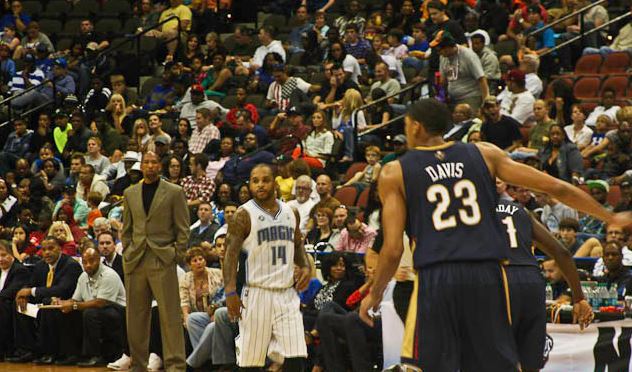(Image: David Bernacchi)
Until I read Tom Haudricourt’s blog post today – headlined “Mark Attanasio expects to win with Brewers’ highest payroll” – I hadn’t realized the Brewers 2014 payroll would be the highest in team history. According to Haudricourt, it breaks the previous record of $101.2 million set in 2012, and is well above last year’s relatively modest $84.3 million. From this fan’s perspective, it can’t be a bad sign that team ownership is willing to show its players the money. Attanasio seems to think it will be worth it:
“We’re at the point now where we’re well into the top half of payrolls in the major leagues. We have more pitching depth than we’ve had, really, in 10 years. As I’ve explained to everybody, as investors you wouldn’t make that decision to lose. The ownership group felt like this was the year to invest (more) in the team. I think we’re going to surprise people this year.”
On one hand, it seems intuitive that spending more money on players should translate to success on the field. Fans of smaller market teams (probably not just in baseball) have long complained that a few big-spending teams have unfair advantages. Indeed, MLB’s revenue sharing and luxury tax schemes appear to be premised on the idea that a team’s performance is tied to their spending.
On the other, the actual relationship between payroll and win-loss record is difficult to pin down. Here’s a helpful list of adjusted team payrolls:
New York Yankees: $229M
Los Angeles Dodgers: $216M
Philadelphia: $160M
Boston: $159M
Detroit: $149M
San Francisco: $142M
Los Angeles Angels: $142M
Texas: $127M
Chicago White Sox: $124M
Toronto: $118M
St. Louis: $117M
Washington: $112M
Cincinnati: $111M
Chicago Cubs: $104M
Baltimore: $92M
Milwaukee: $91M
Arizona: $90M
Atlanta: $89M
New York Mets: $89M
Seattle: $84M
Cleveland: $83M
Kansas City: $80M
Minnesota: $76M
Colorado: $75M
San Diego: $72M
Oakland: $69M
Pittsburgh: $66M
Tampa Bay: $57M
Miami: $40M
Houston: $24M
It’s not surprising to find the awful Marlins and Astros are at the bottom of the list, or the World Champion Red Sox in the top five. The Dodgers have ramped up their payroll in the last few years, and have a 2013 NLCS appearance to show for it.
But throughout list there are plenty of examples that high payroll does not necessarily guarantee success, and that low payroll does not necessarily doom a team. The Yankees finished fourth in their division with the highest payroll in the majors. Likewise, big spending by the Giants and Phillies didn’t keep them out of fourth place. Meanwhile, the Pirates and Braves both made the NLDS with below average payrolls.
Pundits, statisticians, and economists have made efforts over the years to determine if payroll correlates with performance. The results do not usually find a strong connection between spending and winning. For example, this analysis of the 2012 season by Dave Cameron found higher spending teams won more, but not overwhelmingly so:
The ten highest payroll teams essentially paid an extra $74 million per team over the bottom tier spenders, for a net benefit of 10 extra wins apiece, which shows that there is real value in spending money. However, they outspent the middle tier teams by $52 million for a net of only two extra wins, showing some real diminishing returns on higher payroll levels beyond the league average.
At the Freakonomics website, Dave Berri looked at payroll data from 1988-2012, compared it to teams’ winning percentages, and also found less than meets the eye:
[T]here is a statistical relationship. More spending seems to get you something.
At least, that’s the story you tell if you look at all 25 years. When you look at each year individually…the power of team spending seems to vary quite a bit. […]
So here’s the big question: Why is this relationship not stronger? One would think that as teams spend more they see more wins. But often, that’s not what we see in the data.
Given that the relationship between payroll and winning is murky, it probably isn’t fair for Attanasio – or fans – to believe this record level of spending will guarantee more Brewers wins. We can always hope – my understanding is that hope springs eternal. “Expect” might be a little too much to ask.
Add The Sports Daily to your Google News Feed!
